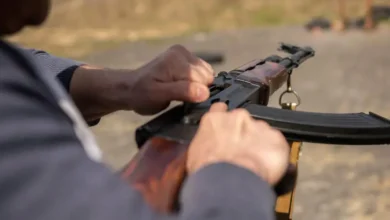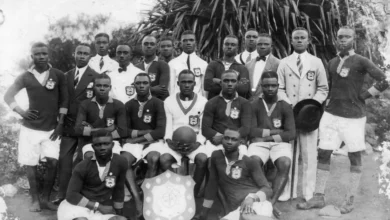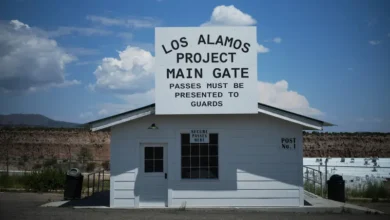Jury for murder case goes home without reaching verdict

The jury in a Massachusetts woman’s murder trial went home Friday without reaching a verdict after deliberating for four days.
Karen Read, 44, of Mansfield, faces charges of second degree murder, manslaughter while operating under the influence of alcohol and leaving the scene where there has been personal injury and death in connection to the death of her boyfriend, Boston Police officer John O’Keefe, in January 2022.
Prosecutors alleged Read dropped O’Keefe off at another officer’s house party in Canton, Mass., after a night of drinking. She allegedly hit him with her SUV and left him to die in the snow.
Read’s lawyers argue she was framed, and evidence showed O’Keefe had been beaten by someone else inside the house and bitten by a dog before being left outside.
She faces the possibility of life in prison if convicted.
Jurors after three hours of deliberations Friday wrote to Judge Beverly Cannone that despite “exhaustive review of the evidence” they could not reach a unanimous verdict.
Cannone then ordered them back to the jury room to resume deliberations, saying “I’m not prepared to find that there have been due and thorough deliberations at this point.”
The jury returned without a verdict to the courtroom at about 4:15 p.m. EDT, at which point Cannone dismissed them for the weekend.
Deliberations are set to resume at 9 a.m. Monday.
Prosecutors and defense attorneys in response to the letter sparred over whether or not the jury received sufficient time to reach a unanimous verdict. Assistant District Attorney Adam Lally argued the jury had “slightly shortened days” and it is “far, far, far too early in their deliberative process.”
Read’s defense, however, argued the jury had been working “essentially non-stop over the last three, four days.”
“They’re communicating to the court that they’ve exhausted all manner of compromise, all manner of persuasion and that they’re at an impasse,” Defense attorney David Yannetti said.
Deliberations began Tuesday afternoon after the jury heard closing arguments from the defense and prosecutors. As of Friday afternoon, they had deliberated for less than 20 hours.
Criminal defense attorney Peter Elikann said the jury has a mountain of information to sift through, including testimony from more than 70 witnesses and over 600 pieces of evidence over nine weeks.
“Keep in mind, we’ve all been talking about this case, gossiping,” Elikann said. “The jury has never been able to talk about this at all. They’re forbidden to chat about this case, and this is the very first time they’re sitting in a room, the 12 of them, and going over the evidence, and chatting. They must just be ready to explode with all this pent in them for the last nine weeks.”
Read’s lawyers and her supporters, however, have been anxious about the length of what they believe should be a “cut and dry” case.
“I’m trying to stay hopeful but getting a little nervous because to me it’s like cut and dry the decision to be made and so kind of confused on where the jury is kind of at and what they’re still deliberating about,” Read supporter Emma Lowry said outside of the courtroom.
It’s not unusual for deliberations to go on long in high-profile cases.
The jury in Patriots star Aaron Hernandez’s three-month-long trial found him guilty of killing Odin Lloyd after about 36 hours of deliberations. He was cleared, however, of charges in the killings of Safiro Furtado and Daniel de Abreu.
Infamous crime boss Whitey Bulger was convicted after 32 hours of deliberations and two-months in court.










